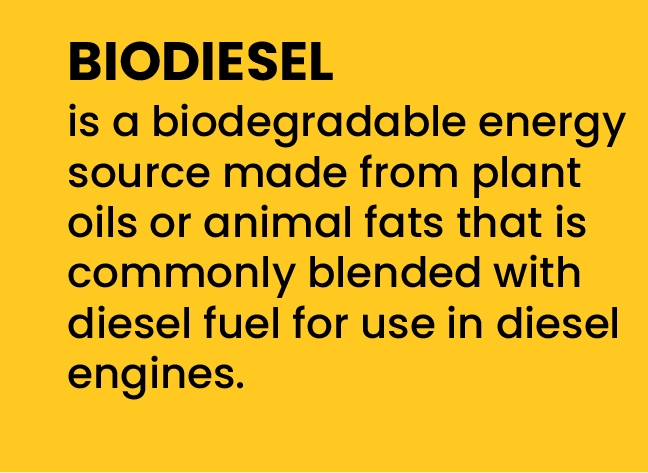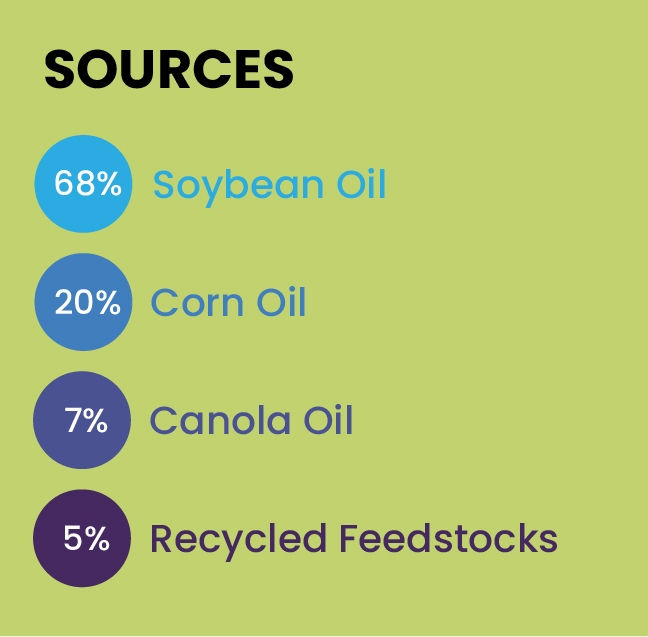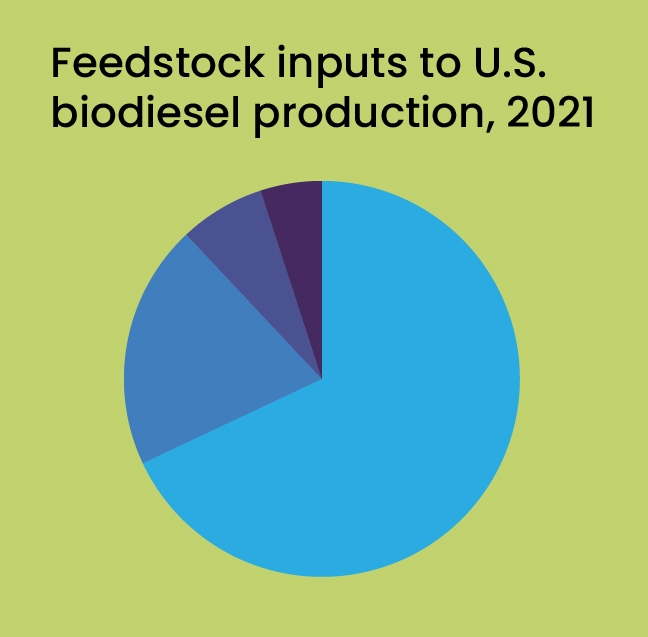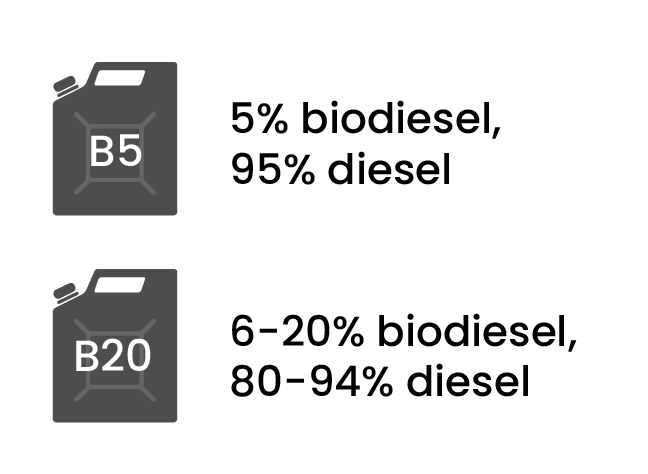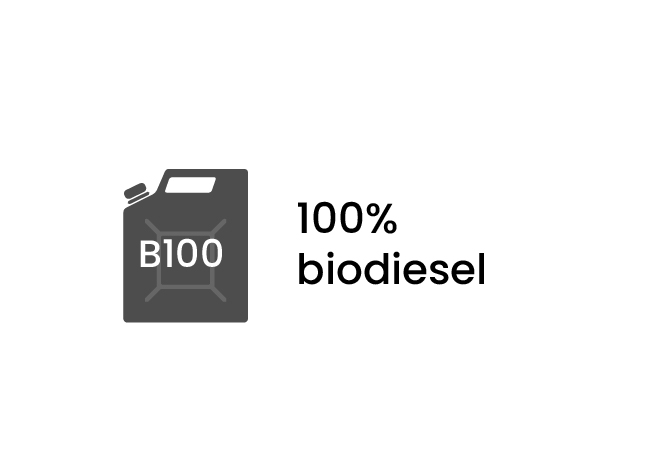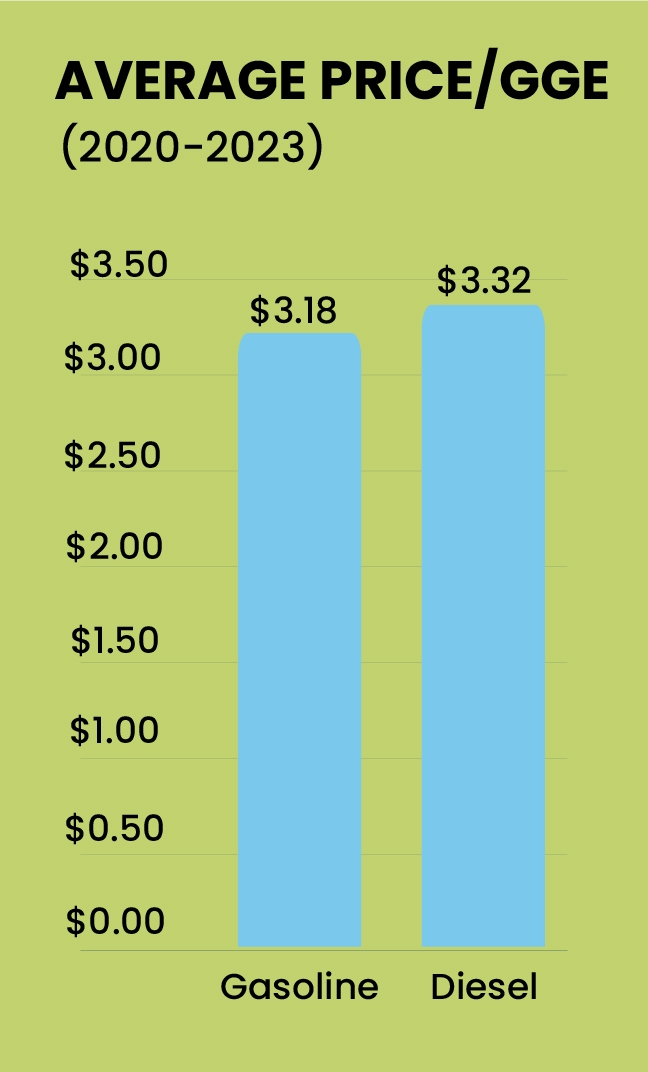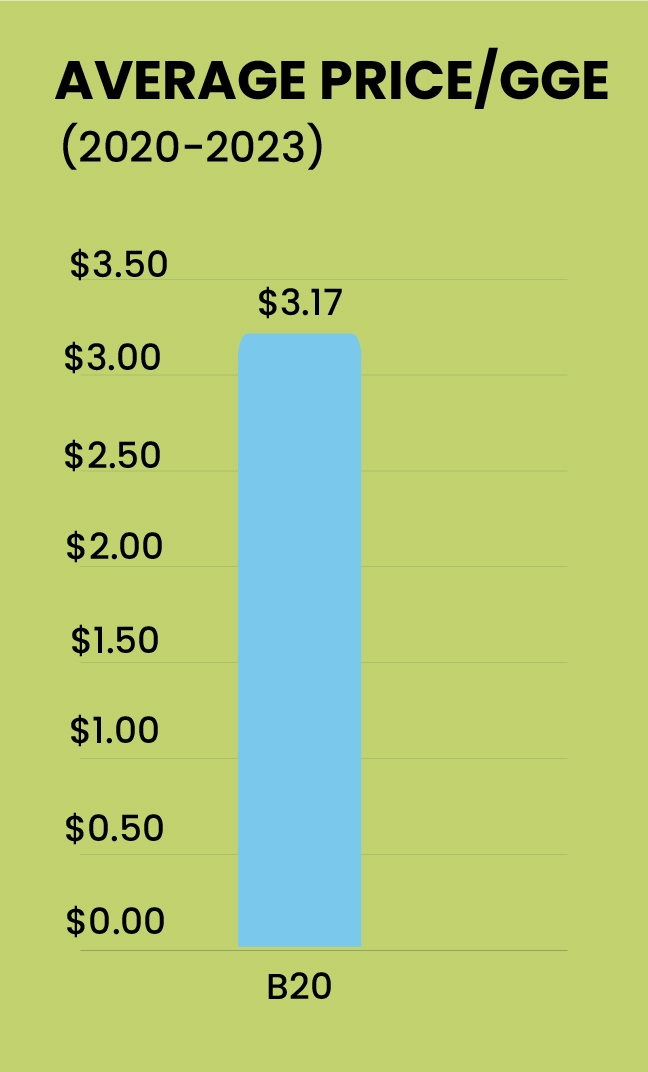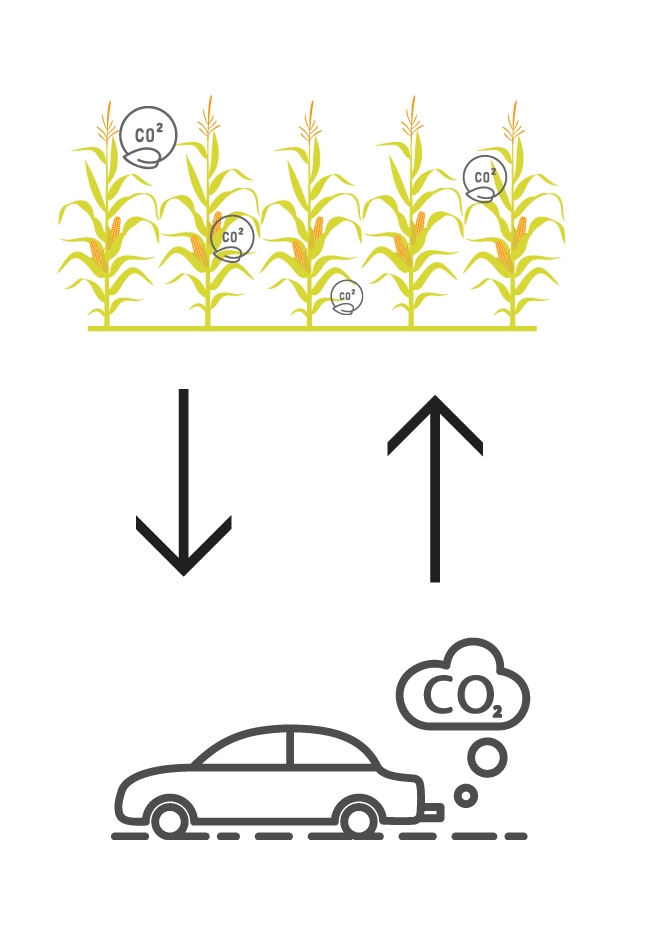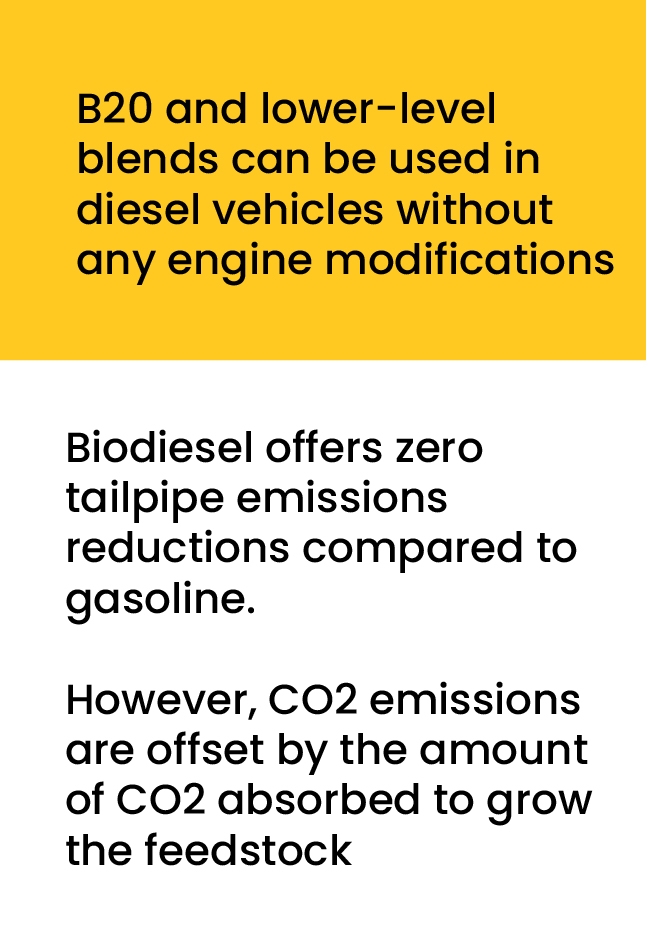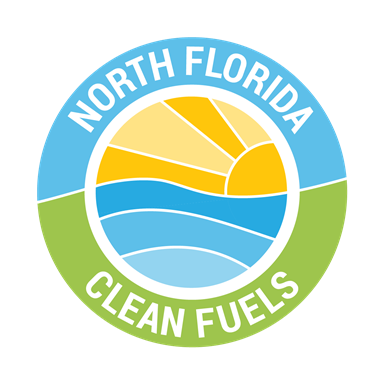Biodiesel
Biodiesel is a cost-effective alternative for reducing emissions in diesel fleets.
Producers derive biodiesel, a cleaner-burning renewable fuel, from sources such as vegetable oils, waste restaurant grease and animal fats. Algae is also under study as a biodiesel feedstock, but adoption will be at least a decade away due to high upfront costs. Biodiesel shares many physical properties with petroleum diesel and is compatible with existing diesel engines and fueling infrastructure.
Biodiesel comes in a variety of blends, the most common of which are B5 (five percent biodiesel, 95 percent diesel), and B20 (20 percent biodiesel, 80 percent diesel). Blends lower than 20 percent are not considered an alternative fuel. B5—and lower-level bends—are approved for safe operation in any diesel-powered vehicle without any modifications and are often called “diesel” at the pump with no separate labeling required. Most diesel engines can operate on B20 without modification, with minimal impact on fuel economy. Pure biodiesel (B100) is less commonly used as a transportation fuel since engines may require modification to run on pure biodiesel. Biodiesel's enhanced lubricity may extend the lifespan of diesel engines.
While advancements in diesel vehicle technology since 2010 have led to reduced tailpipe emissions, biodiesel results in significantly less life cycle emissions, which consider the entire production and use process. Biodiesel combustion releases “biogenic” carbon dioxide (CO2) emissions, which are re-absorbed by plants (from which biodiesel is derived). This cyclical process results in emissions reductions proportional to the blend percentage. For example, B100 exhibits the greatest GHG reduction relative to petroleum diesel (as much as 75 percent). Specific emissions reductions depend on the feedstock used in biodiesel production.
Biodiesel is made at production facilities and shipped to fuel distributors which supply fleets or conventional retail gas stations. Biodiesel is distributed or produced by FPL and BioDiesel Las Americas in Florida.
